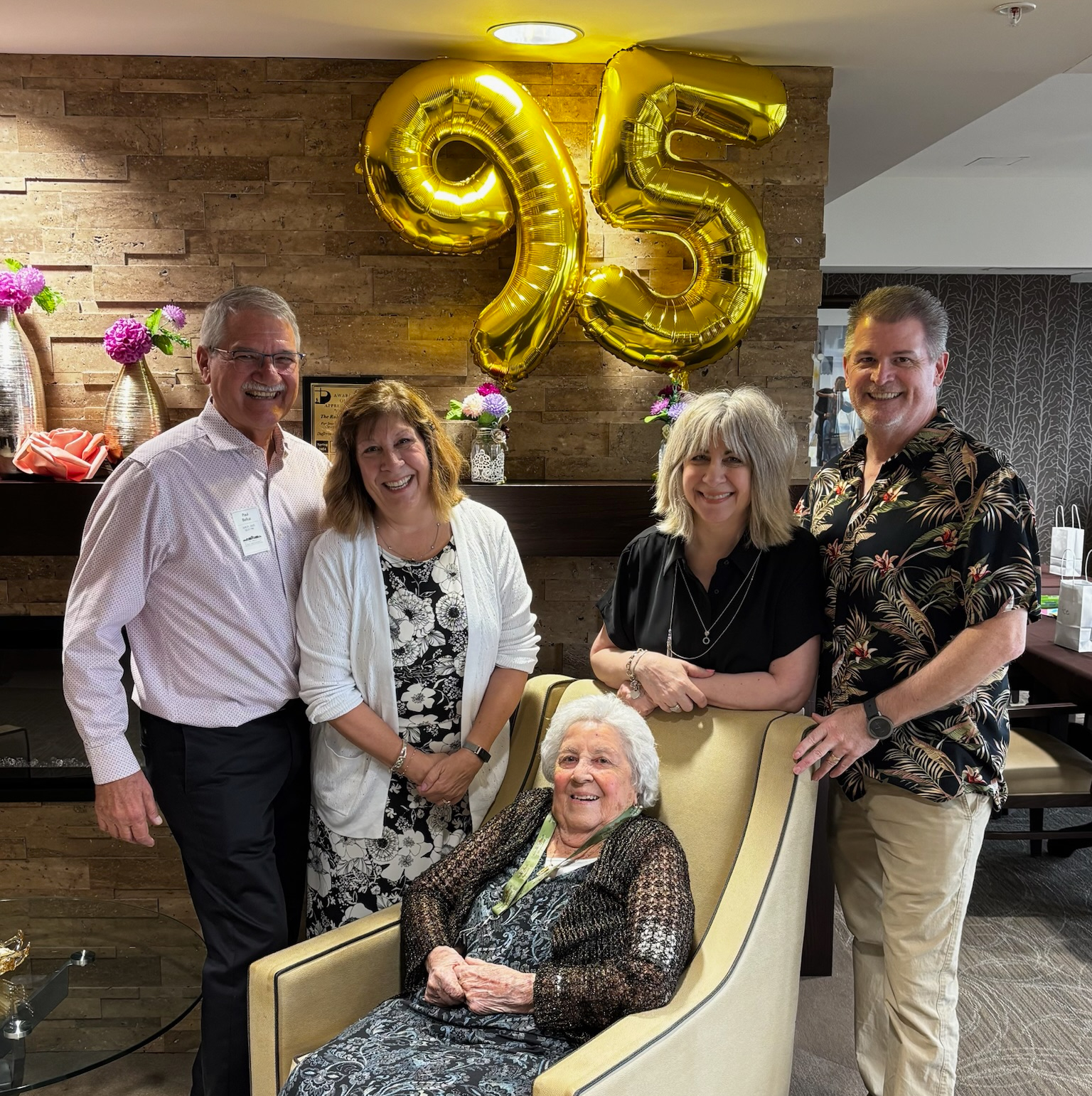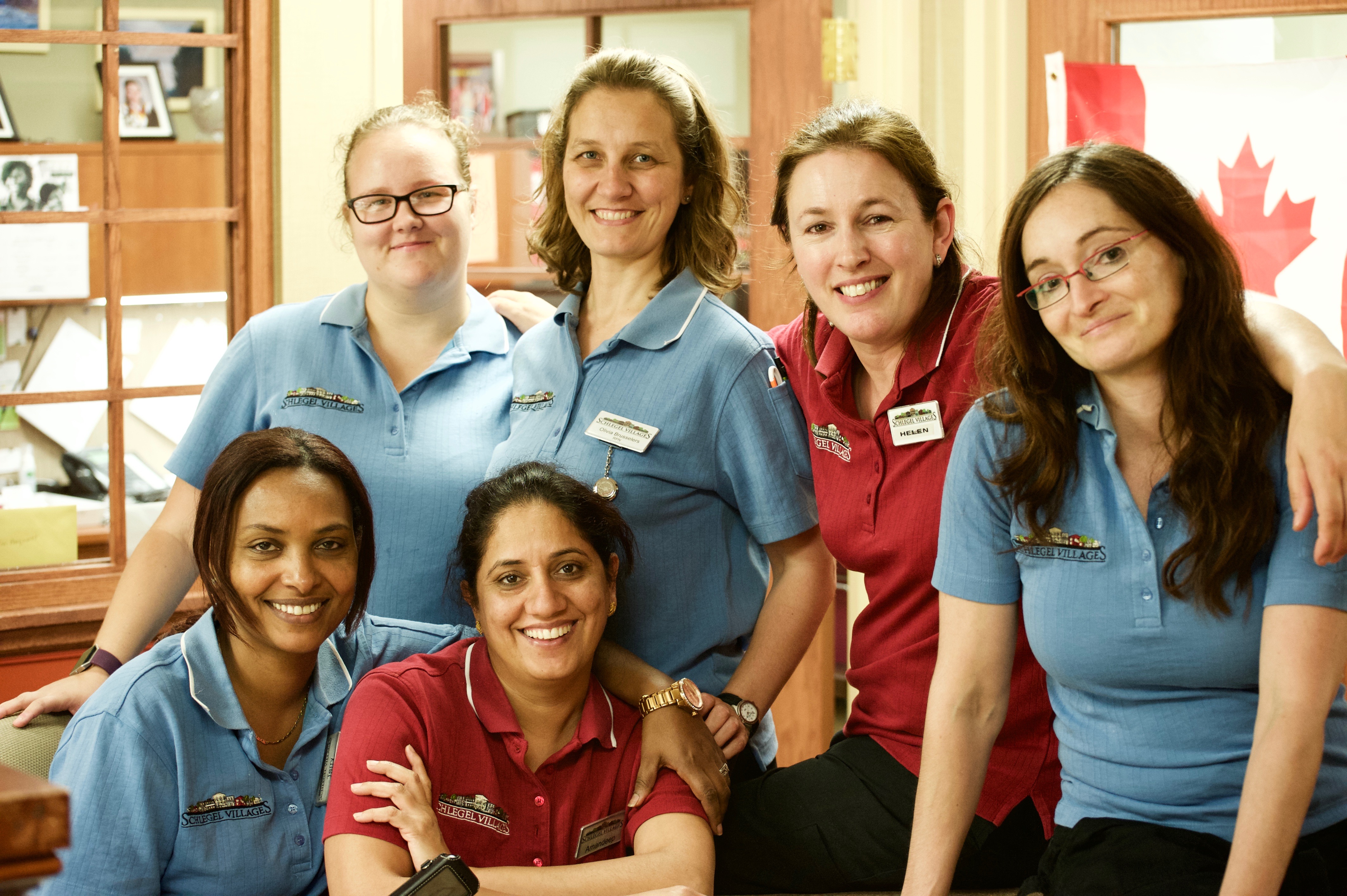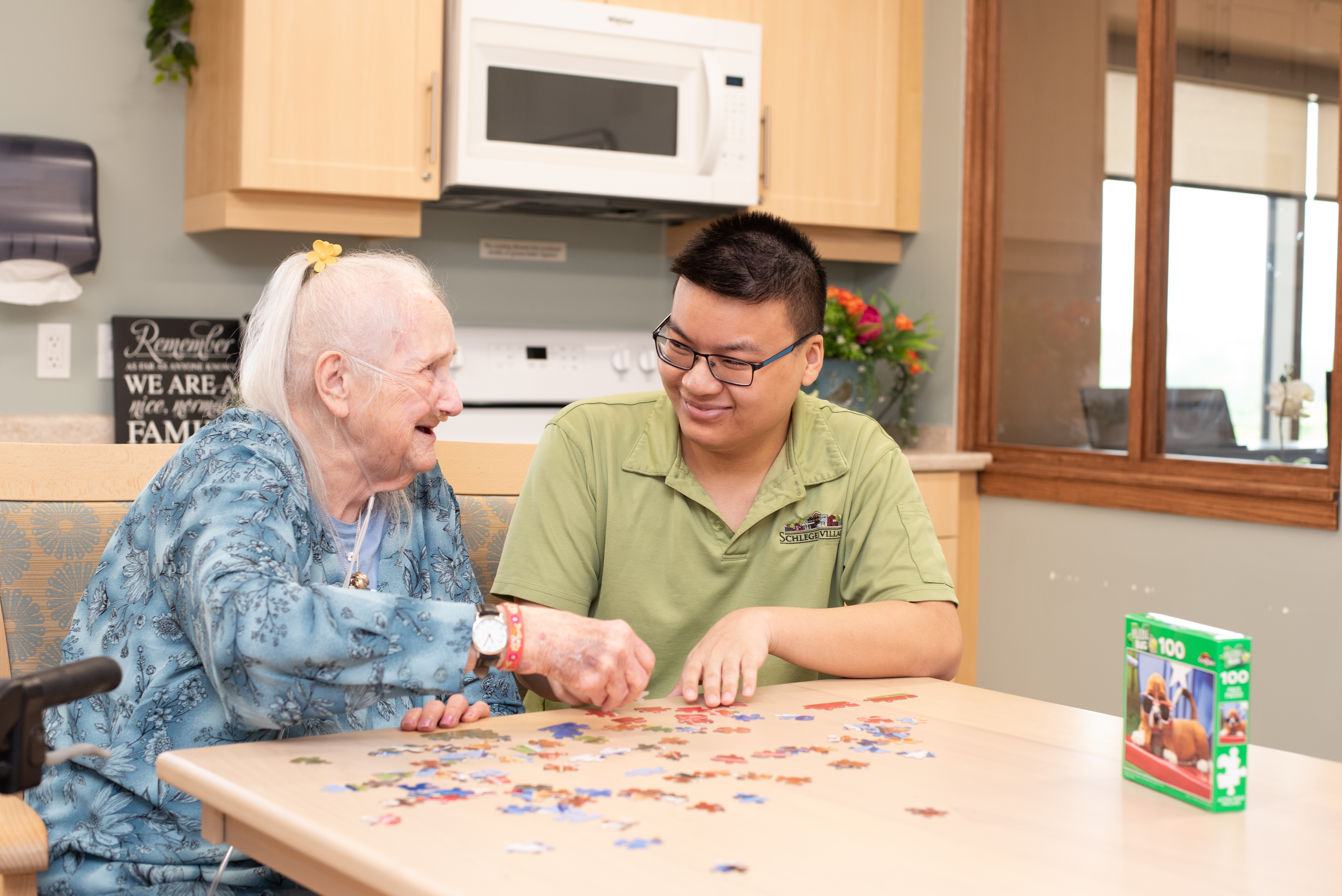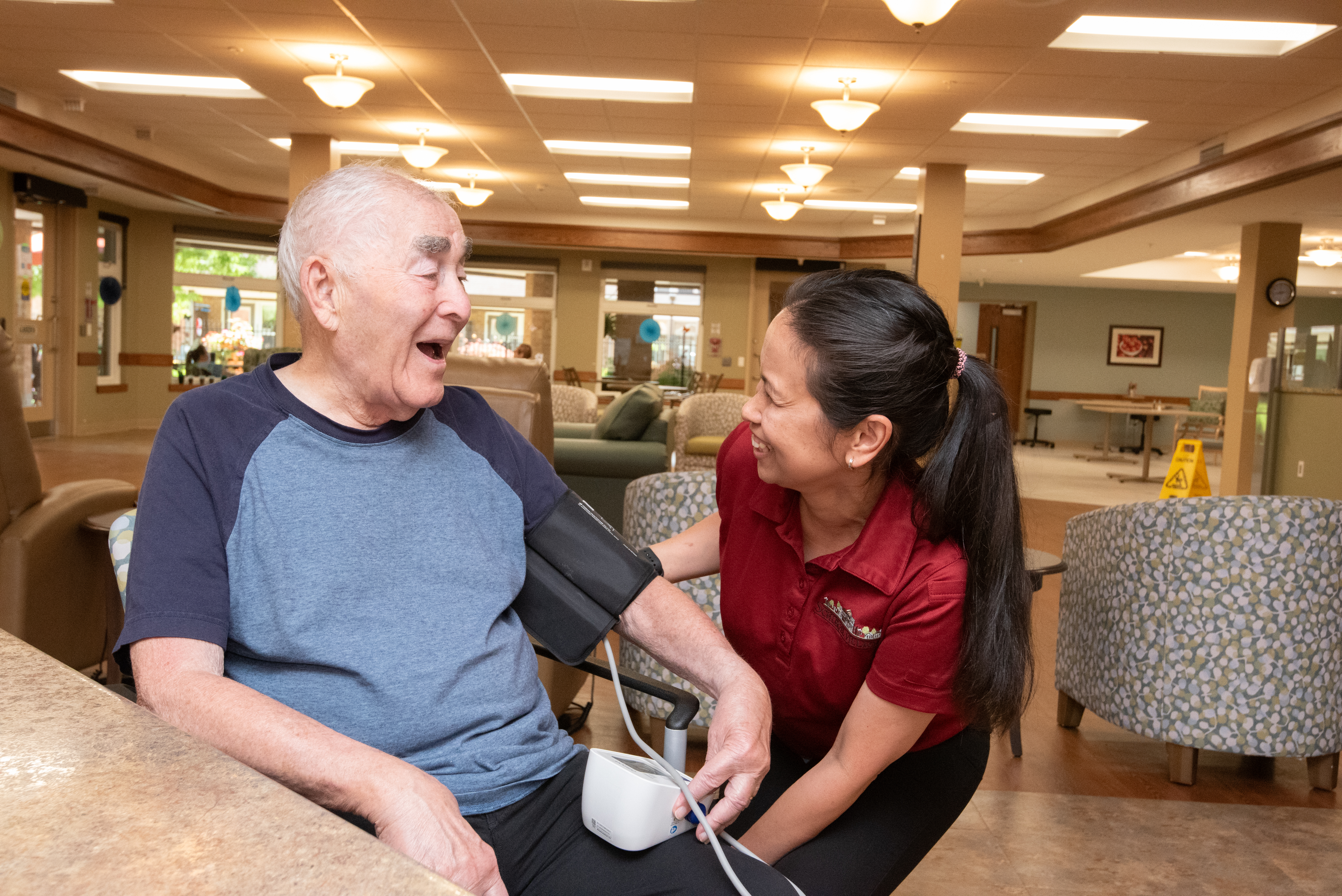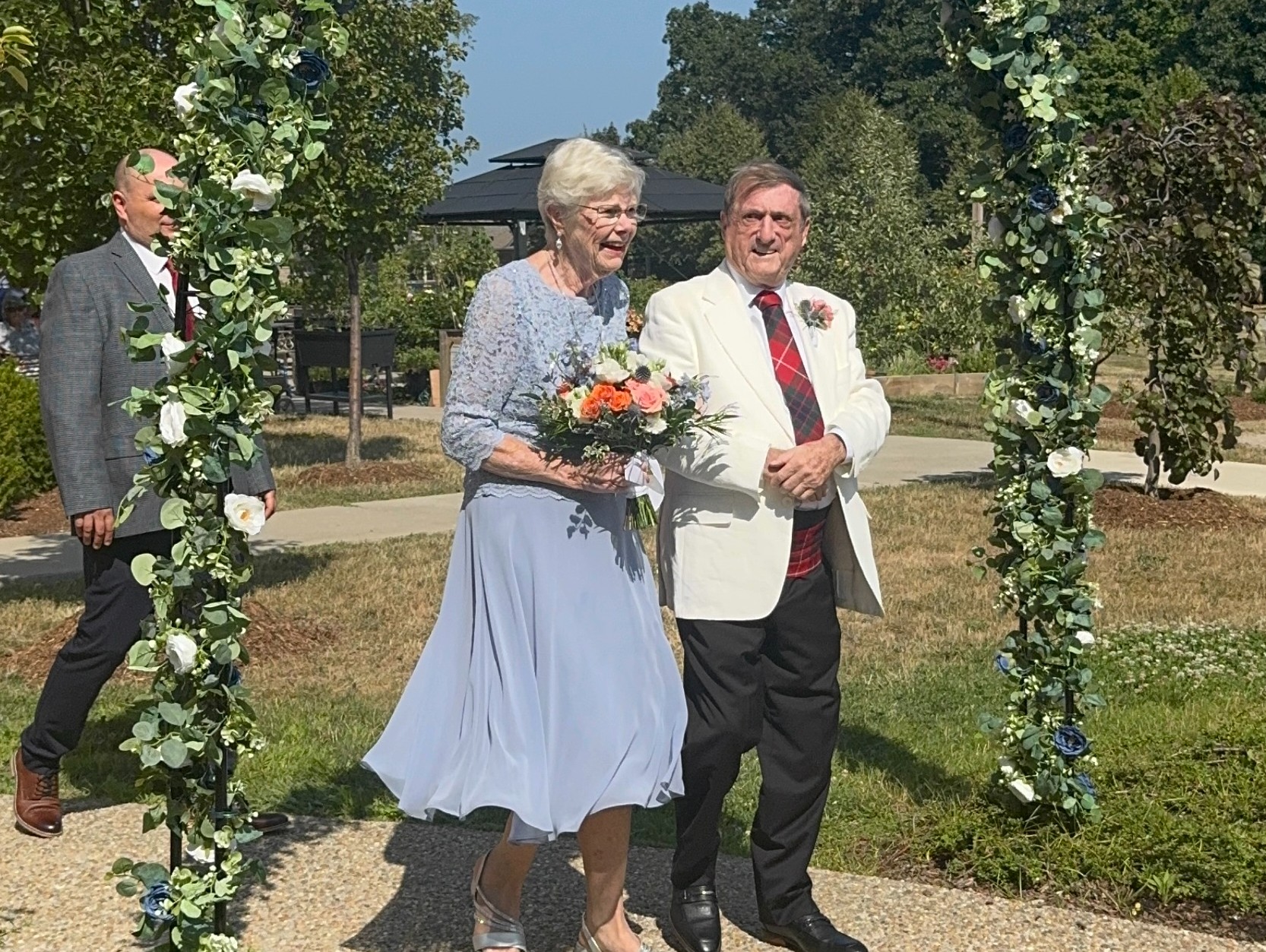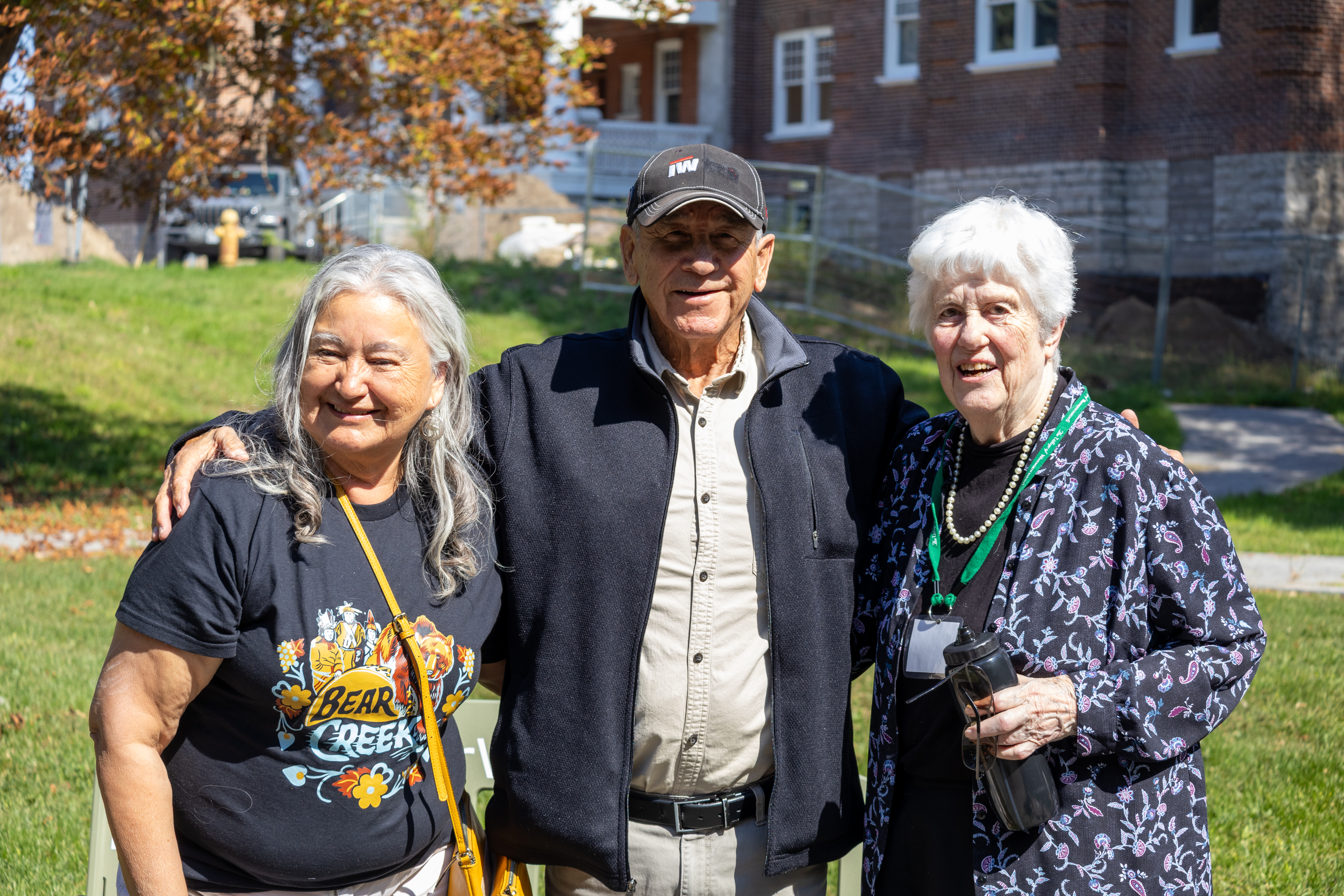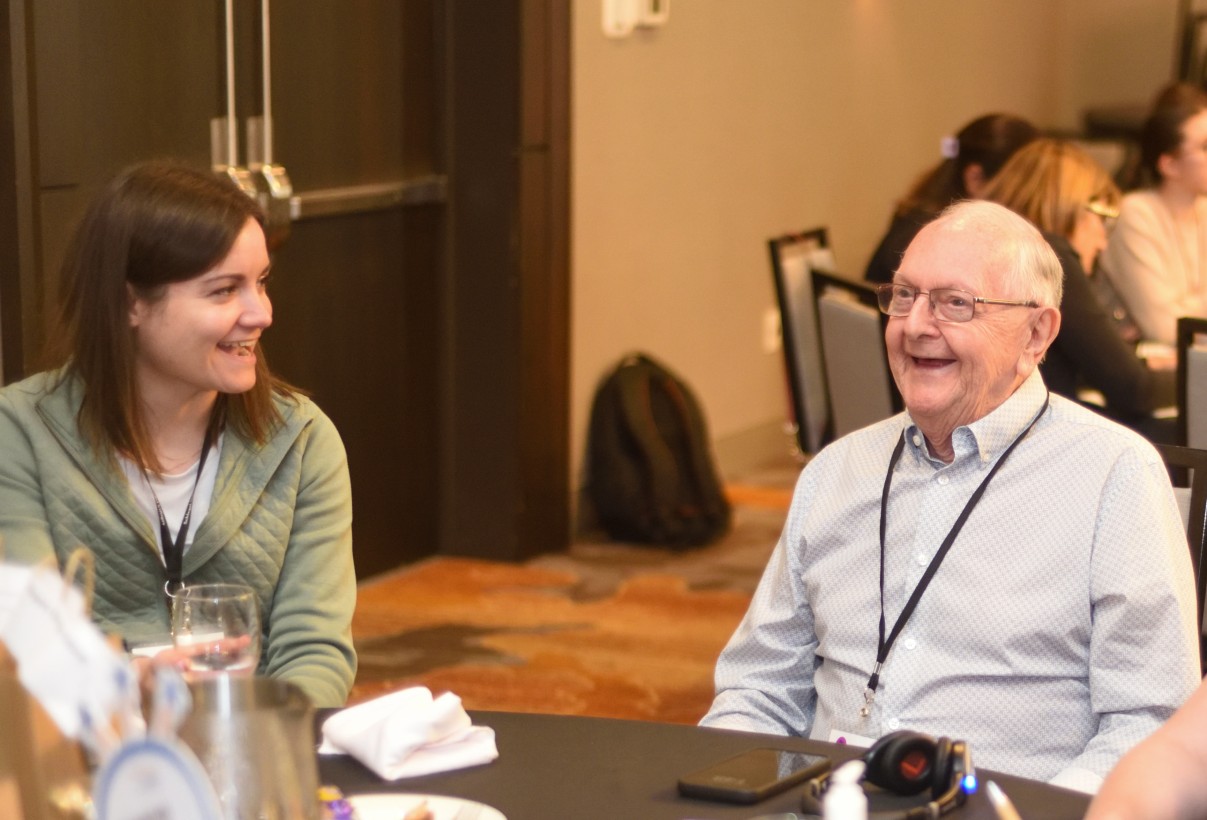On top of his gifts as a meticulous planner overseeing a wide range of complex construction projects as vice president of design and construction with RBJ Schlegel Holdings, Brad Schlegel offers humour and charm to the people he meets.
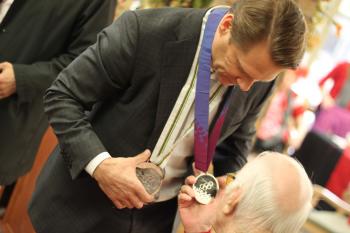
Brad Schlegel with his two Olympic silver medals during
the Schlegel Olympics this winter. Brad shared his views on
coaching during this year's Leadership Retreat.
Some might call this, “the gift of the gab.”
That, combined with his gifts as an athlete, made Brad a natural choice as a keynote speaker on Day 2 of the annual Schlegel Villages Leadership Retreat, held at Brampton’s Pearson Convention Centre April 25-26.
The theme this year was Coach, Grow and Win, and Brad could never have excelled as an elite hockey player without the encouragement, inspiration and examples offered by a wide range of coaches throughout his career.
“Coaches have had a big impact on me throughout my life,” Brad says, “especially in my formative years as a youngster and a teenager and as a young man, and each coach has been different. They all coached in either slightly different styles or vastly different styles and although some were perhaps more effective than others, they each had at least some elements of their coaching method that were effective and you could learn from.”
In any setting, whether its an Olympic hockey team or a team of caregivers in a Schlegel Villages neighbourhood, a strong coach or leader must know their strength and that of their team members in order to draw out the best in everyone. During his keynote address, Brad spoke about the impact several of his coaches had during his life.
In his earliest days as a boy playing alongside his twin brother Jamie, he learned the value of coaching to a higher purpose thanks to one of his most impactful coaches, Murray Fried. Murray loved hockey, Brad explained, but he was also teaching boys how to be young men encased in old-fashioned values and the best of human attributes, like respect for others and the world around them.
“He was big on how we carried ourselves and treated other people,” Brad said of Murray. “He used hockey to teach us young kids about the important parts of life. He set the bar so high and coached in such a different way, I realize now looking back that this was anything but normal in a very positive way.”
The leaders in the room could relate as Brad spoke, for they too work to a higher purpose; they don’t simple care for village residents, they seek to enhance their lives and bring meaning and joy to those they care for.
Some of Brad’s mentors coached with imagination, while others had a knack for coaching individually, even if their tactics were a little harsh in the eyes of some. Some were motivators, while others, like Barry Trotts, were friends. One his most impactful coaches, Dave King, was a groundbreaking innovator and instructor with an almost professorial ability to break the game down and inspire his players to think about it in entirely new ways.
A good coach has their players’ backs, Brad said, supporting them in the face of adversity and defending them when needed. All coaches offer something of themself, and as he wrapped up his keynote speech, Brad spoke of the key to success as the ability of any coach to be open and transparent with those they serve.
Schlegel Villages continues to grow as an organization, seeking to offer the best service possible to seniors and those with complex care needs. Meeting this demand requires teams of the greatest strength and coaches that can inspire the best in those they serve.
It was a gift to the leaders gathered at the Brampton retreat that Brad Schlegel could share a snapshot of the coaches that inspired him, and the villages will be better for it.
- Previous
- View All News
- Next
